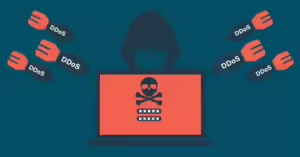Gaming has evolved into a global phenomenon, uniting people through shared adventures and competitive thrills. The joy of gaming is found in its capacity to offer an immersive escape, foster teamwork, and build communities across the globe. From exhilarating multiplayer experiences to creative solo quests, gaming provides a unique and enjoyable form of engagement for people of all ages.
offer an immersive escape, foster teamwork, and build communities across the globe. From exhilarating multiplayer experiences to creative solo quests, gaming provides a unique and enjoyable form of engagement for people of all ages.
However, the gaming experience can be marred by negative behaviors and technical disruptions. One significant issue is meanness towards other gamers. Toxic behavior—such as bullying, harassment, or unsportsmanlike conduct—can spoil the enjoyment for everyone involved. It creates an unwelcoming environment that detracts from the collaborative spirit that makes gaming so enjoyable. For many players, encountering meanness can diminish their enthusiasm and even drive them away from the games and communities they once loved.
Another serious concern that impacts the gaming experience is Distributed Denial of Service (DDoS) attacks. These attacks involve overwhelming a game’s server or a player’s connection with a flood of traffic, rendering the game unplayable and causing widespread frustration. The effects of DDoS attacks ripple out to affect not just the end users but also the Internet Service Providers (ISPs) involved.
For end users, a DDoS attack can lead to severe disruptions in gameplay, including lag, disconnections, and an overall degraded experience. This not only affects enjoyment but can also hinder progress in games that require real-time performance. The immediate impact is clear: players are left unable to connect with friends, participate in competitions, or enjoy their favorite titles.
ISPs face significant challenges as well. When a DDoS attack targets their network infrastructure, it can lead to a loss of service for many customers, not just those directly involved in the gaming community. The increased traffic overloads the network, which can degrade service quality and lead to widespread outages. For ISPs, this translates into increased operational costs, the need for additional resources to mitigate the attack, and potential damage to their reputation.
In addressing these issues, it’s crucial for the gaming community to promote positive interactions and respect among players. By fostering a culture of kindness, gamers can enhance the overall experience and create a more supportive environment. Additionally, both game developers and ISPs must work together to implement effective security measures to protect against DDoS attacks. This collaboration helps ensure that gaming remains a source of joy rather than frustration, safeguarding the enjoyment and connectivity that players value so highly.
In summary, while gaming offers immense joy and connection, negative behaviors and technical threats like DDoS attacks pose real challenges. By focusing on positivity and resilience, the gaming community can continue to thrive, providing a rich and rewarding experience for all.
